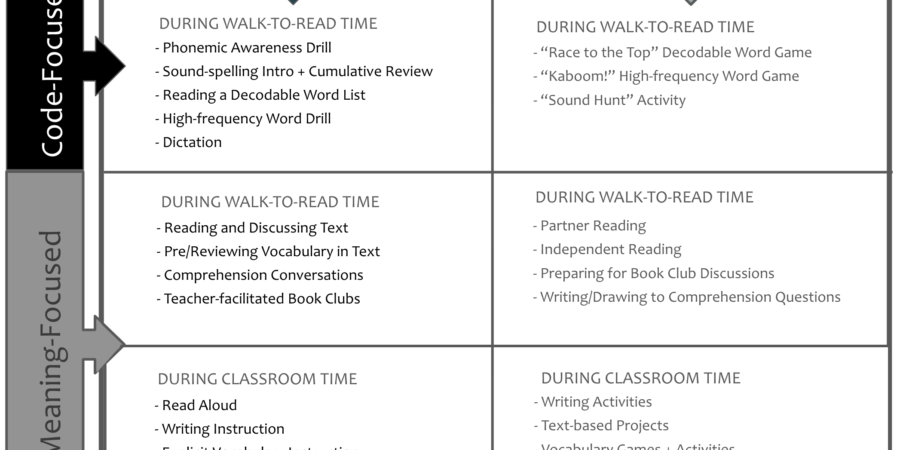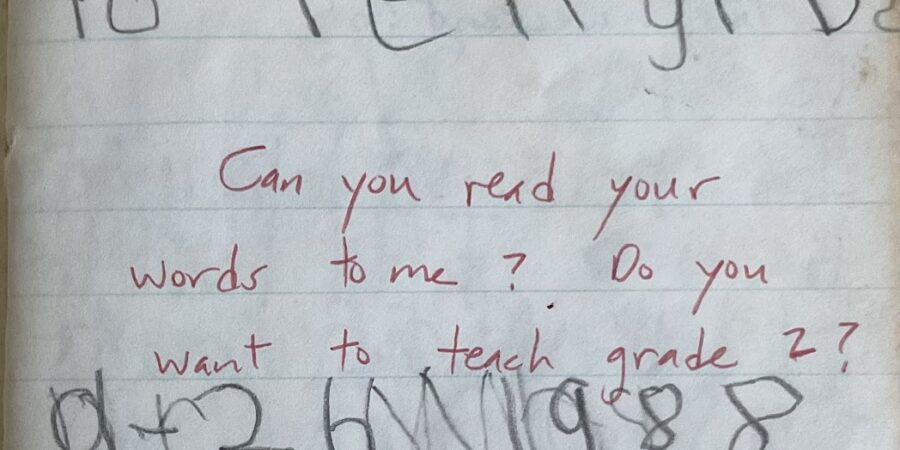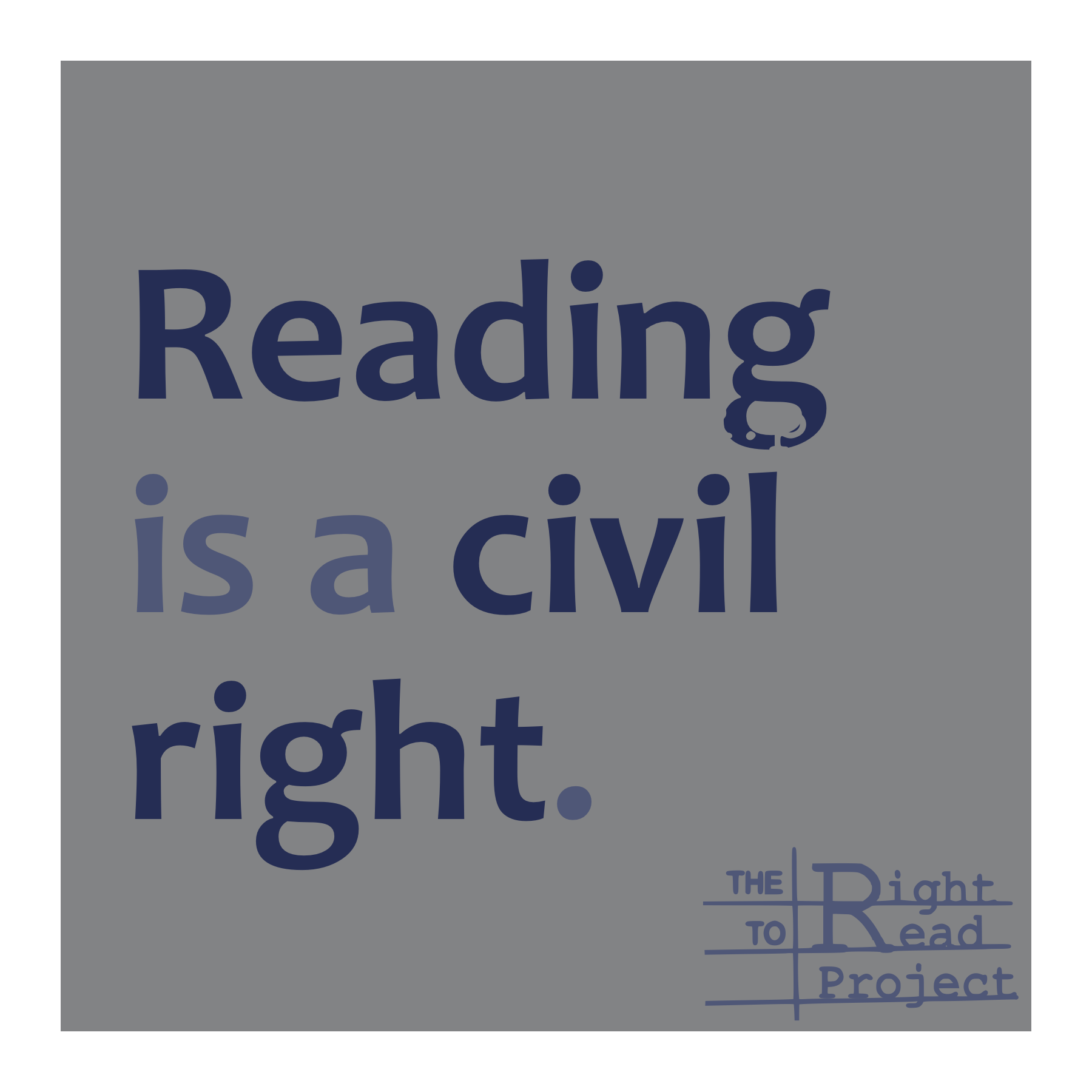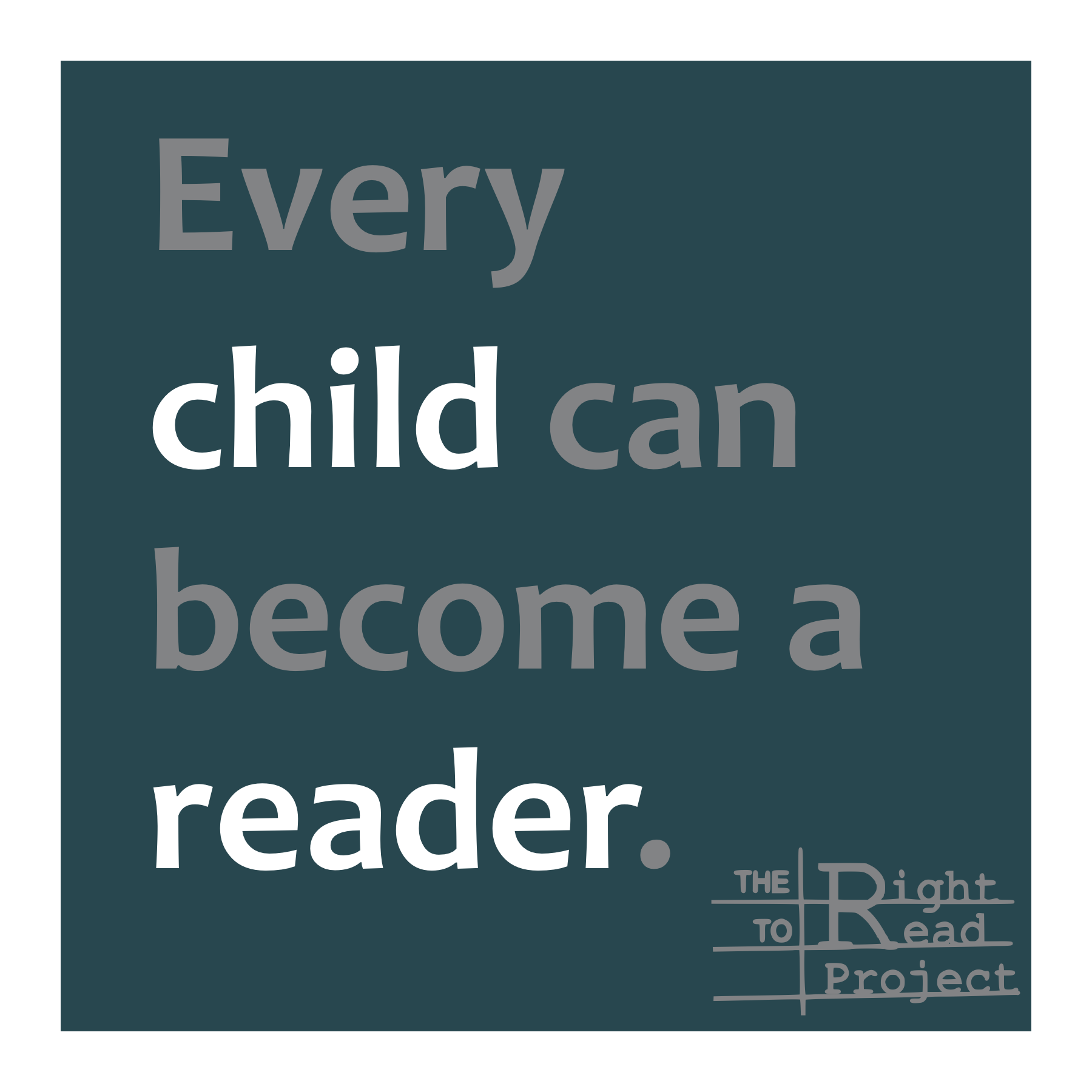I loved my first grade teacher, but she didn’t teach me how to read. The Start of a Problem Mrs. B earned her teaching credential during the height of Whole-Language. She read aloud to us every day and led projects related to books– making moon hats like Little Bear and our own Stone Soup. For a whole-class rendition of Where the Wild Things Are, a parent volunteer taped construction paper

What does your literacy block look like? It depends…
Schools all over the country are changing how reading is taught and they face two big questions: Decisions about what will be taught, when, and for how many minutes will determine the daily experience of students, and how much they’ll learn in school. Instructional time is limited, so building classroom schedules requires a series of choices that ultimately reflect our values. Looking back at my old schedules, I can see

When Language Is a Wall
When I began to learn about phonics instruction, I saw spelling puzzles in words I’d never noticed before, and I gained appreciation for the difficulty of learning to decode. Now, as an increasing number of students at my school can read accurately, the challenge of comprehension is looming large. It’s hard to identify potential barriers to comprehension when students read a text we ourselves can easily understand. And it’s harder

For the Students We Wish We’d Taught Better
This Letter Was Originally Published in The Hechinger Report To the Editor: Re OPINION: A call for rejecting the newest reading wars Nov. 18, 2022 We are teachers who were sold the very story that journalist Emily Hanford describes in her new podcast: a myth about how students learn to crack the alphabetic code. So, we were disappointed to see the recent letter by fifty-eight professors, authors and curriculum developers

Letting Hero-Worship Go
As discussion of Emily Hanford’s new podcast builds, teachers are questioning stories we were sold by people we trusted. For some teachers, this is the first time they’ve doubted instructional materials that are ubiquitous in elementary and reading intervention classrooms. When we question the tenets of Balanced Literacy, teachers can unearth a trove of information. But how to make sense of it all? As researchers Stanovich and Stanovich explain: The

The Drudgery (and Beauty) of Decodable Texts
I was determined to undo the bad reading habits my students had developed during guided reading. So, I exchanged a leveled reading program for one with decodables and used a diagnostic phonics assessment to regroup my students. For some students, cracking the code was easy Students with strong phonemic awareness linked the sounds they heard in spoken words to the letter patterns I taught. When they came to an unfamiliar

Making Changes that Last: The End of the Pendulum?
There’s new momentum behind teaching reading more directly and explicitly, but many of us are wondering: is this just another swing of a pendulum? It’s hard to believe that investing in new reading practices is worthwhile if the new practices will fall out of favor in a few years. But for district leaders who want to make a lasting impact, there is no better focus than reading instruction– and, if

Whole-language sneaks in EVERYWHERE
Most primary-grade teachers teach phonics because we know it supports our students’ reading and spelling. And many of us also believe that if we incorporate phonics into our instruction, we are by definition not whole-language teachers; we are “balanced literacy” teachers. But whole-language beliefs are so pervasive and so entrenched in education that they continue to serve as the basis for a majority of instructional materials and professional development offerings.

Open Letter: lives depend on literacy; lives depend on us
Teachers are lauded for our martyrdom- “other professions make money, but teachers make a difference”- and frequently bashed , so rarely will we publicly voice our self-doubt. When we’re driving home after a hard day or lying awake at night, we may think about students who struggled. Despite (or perhaps because of) our tireless efforts, we wonder, years after they leave us, “Was there something more I could have done?”








